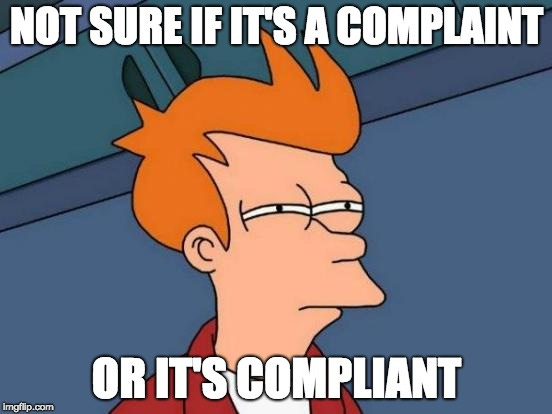Read time: 3 min
A friend brought up a powerful dilemma over dinner last week.
Her company (a textile recycling startup) had successfully grown beyond its initial passionate user base.
However, to accommodate all these new users, they launched a feature that was causing a stir among some early adopters.
Most users were fine with the change, but a small, vocal group threatened to leave.
“What should I do?” she asked, clearly stressed.
“Do you think the change is best for the business and community?” I asked.
“Yes, based on all our testing, it’s the right move,” she replied.
“Then stick with it,” I told her.
“But we’ll lose some of our early users,” she said, worried.
“Yep,” I shrugged. “That’s just part of success. The more successful you get, the more people you’re going to upset.”
Scaling Means More Complaints
This isn’t just a startup problem.
Recently, a professor asked me something similar.
His class had grown so popular that his department wanted to open it to more students. He wasn’t sure how to scale without losing what made it special.
The reality is that the bigger you get, the more people you’ll annoy.
Imagine you’ve got a class with 20 students and 5% complain. That’s just one unhappy person. Expand that to 100 students, and now five people are complaining.
Same percentage, but now it feels much louder.
This is the math of scaling:
More users = More opinions = More complaints.
The Challenge of Serving Everyone
Scaling isn’t just about accommodating more people; it’s about managing expectations.
As your user base grows, so does the complexity of satisfying everyone. And guess what?
You can’t.
My friend wanted to roll back the feature, thinking it would keep everyone happy.
But here’s the truth:
Pleasing everyone is impossible.
Instead, focus on improving and iterating.
Use feedback to refine, but don’t expect to make everyone happy. It’s a pipe dream.
What matters more than perfection is transparency.
I told her:
“Communicate openly about why the changes are happening and how they align with your vision. People will still complain, but being transparent shows that you’re listening.”
Accept the Inevitable
“What if that’s not enough?” she asked, still uneasy.
“It has to be,” I said. “All you can do is stick to your values, iterate where it makes sense, and keep your community in the loop.”
Scaling anything—whether it’s a business, a class, or even a personal brand—means accepting that you’ll never make everyone happy.
It’s tough to hear negative feedback, especially when it’s about something you’ve built from the ground up.
But if you’re focused on doing what’s best for your company, you’ll always make the right call.
More success means more detractors.
The key is to keep your vision strong, stay adaptable, and remember that criticism is just another part of growth.
Whenever you're ready, there are 2 ways I can help you:
👉 Want to co-invest with us in unique pre-seed/seed climate tech moonshots?
Just reply to this message and I’ll share our recent deals.
🌟 Promote your business to 5,500+ Climate Founders & Investors: Enroll in our new multi-channel partnership program to grow your business.






